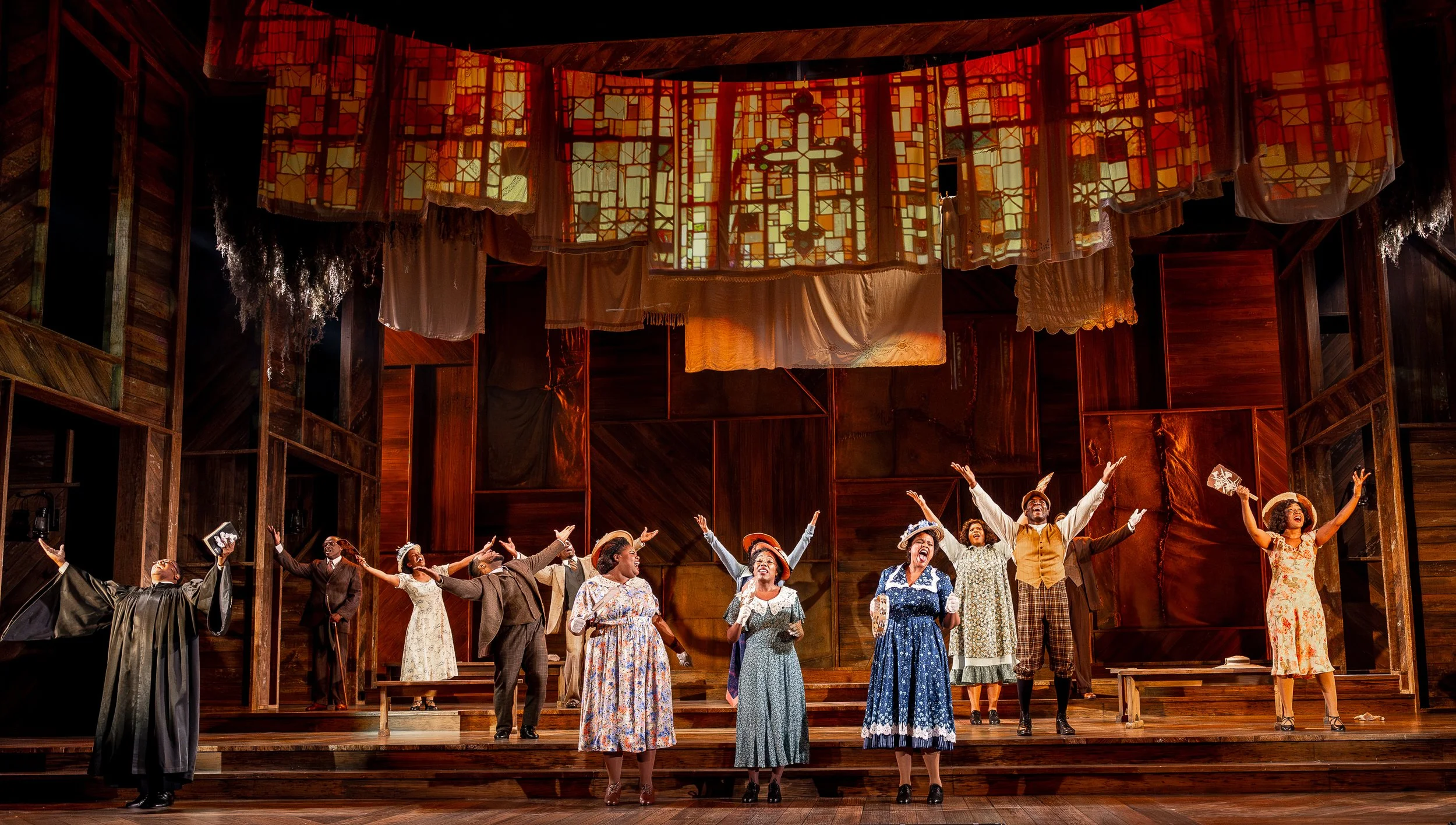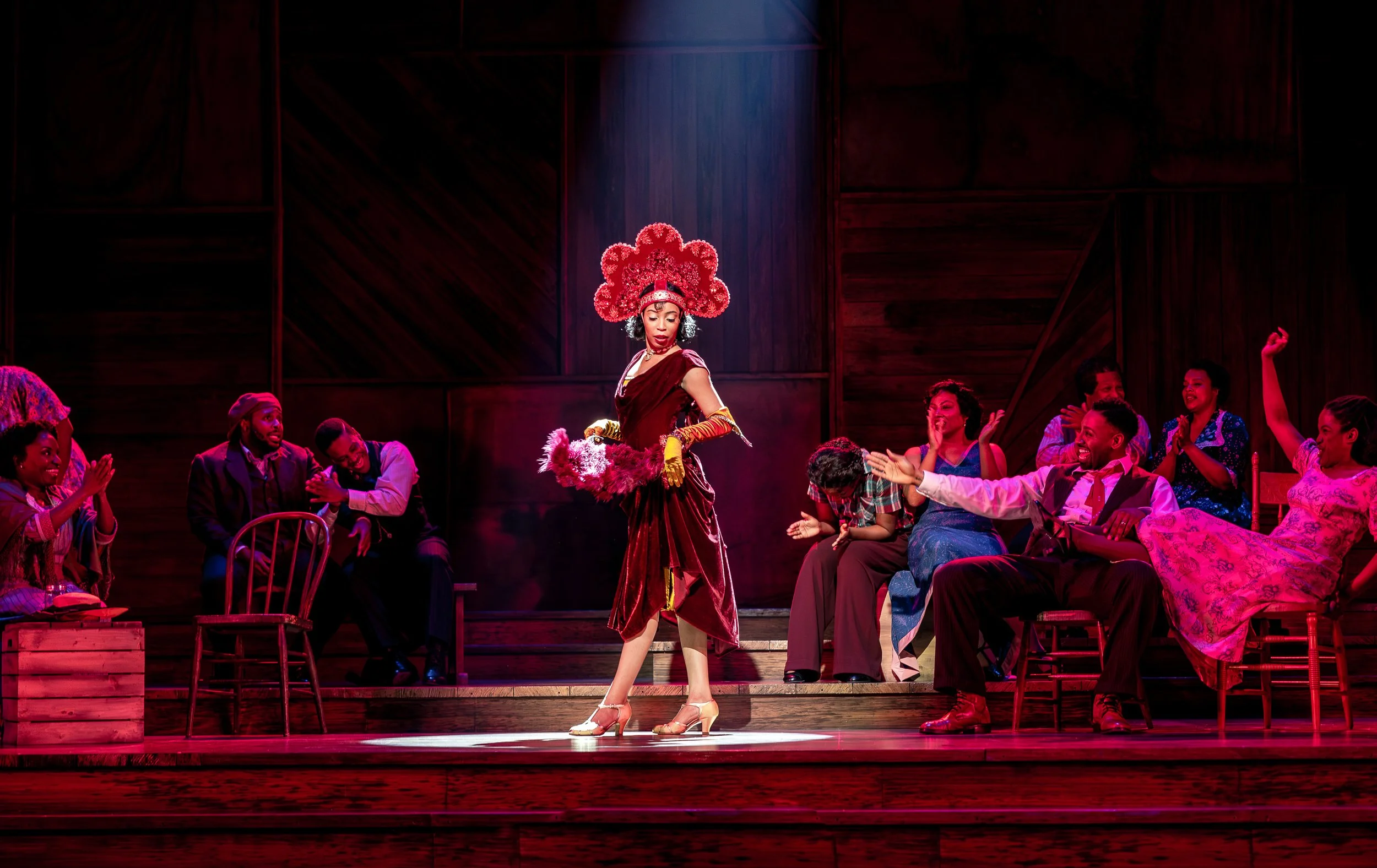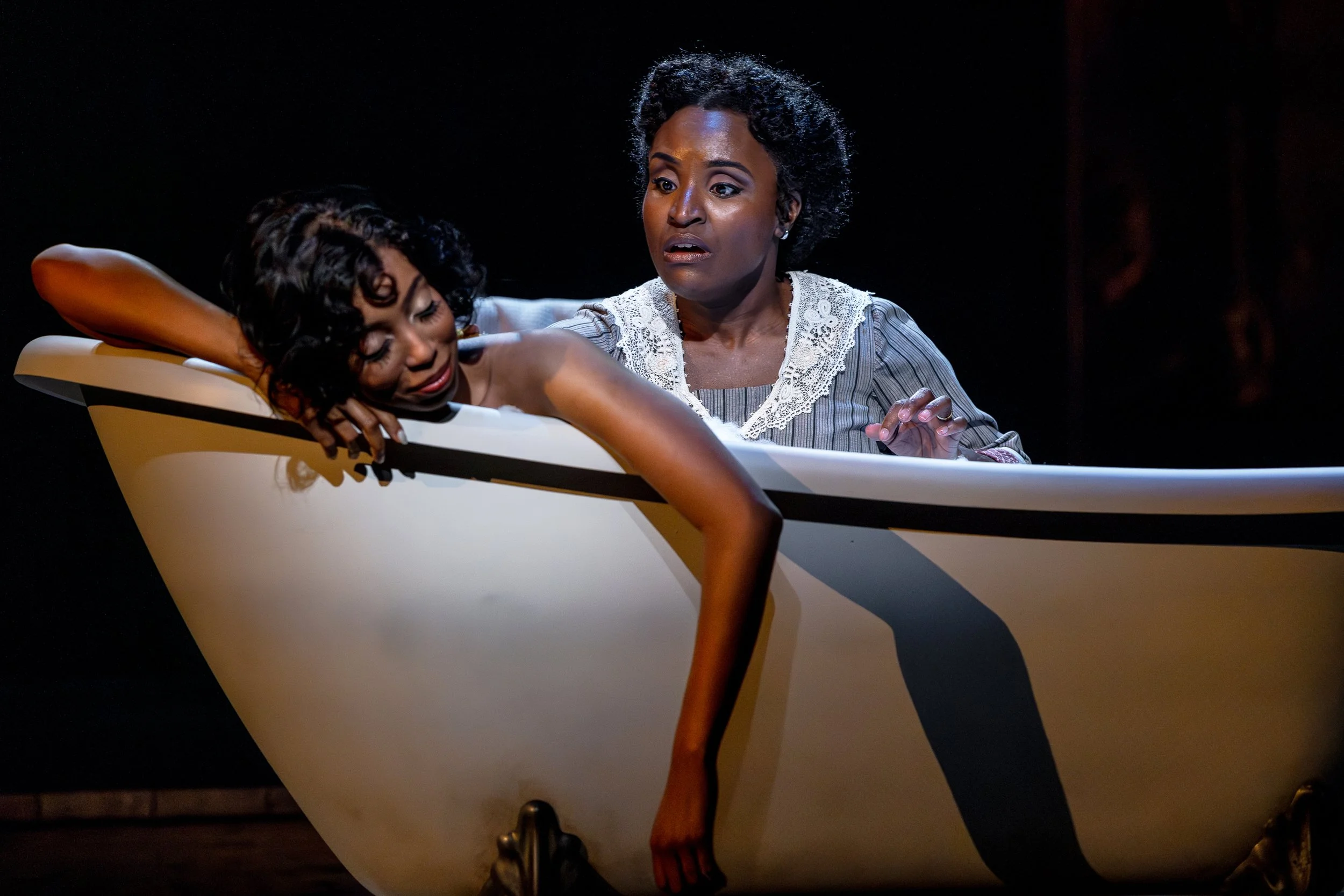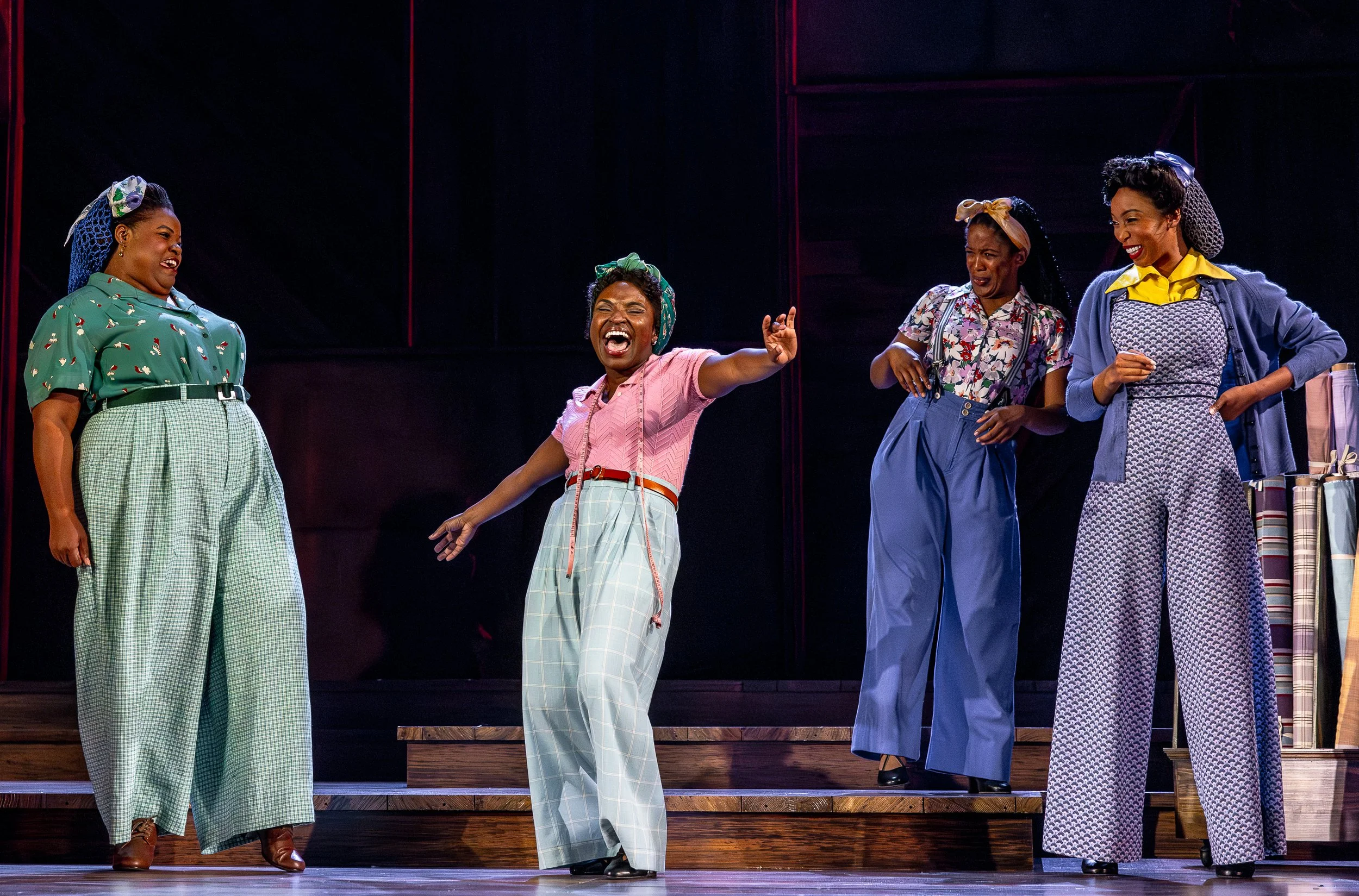The Color Purple
Under the masterful direction of Lili-Anne Brown, the Theatre Goodman vividly brought to life Alice Walker's acclaimed 1982 Pulitzer Prize-winning novel, "The Color Purple." The narrative unfolds through a series of letters and events that illuminate Celie's tumultuous journey. The musical highlights her profound struggles and triumphs as she navigates the harsh realities of oppression and hardship. By the story's conclusion, viewers witness her extraordinary growth from a woman battered by circumstances into a figure of resilience, reclaiming the self-esteem and confidence she lost in her youth. Ultimately, Celie emerges as a joyous, independent, and self-assured woman, radiating strength and newfound purpose. Director Lili-Anne Brown, who previously captivated audiences with her production at Drury Lane Theater, brings this iconic novel to life, transforming the musical into a soulful, church-like experience that resonates with African-American communities while sharing the original love relationship between Celie and Shug. With an all-African American cast, Brown infuses the narrative with rhythm and vibrant enthusiasm, showcasing a story that delves into the depths of generational trauma and the toxic abuse that inflicts profound wounds, particularly regarding the mistreatment of women as mere property. Yet, within this heavy context, Brown artfully brings to life a touching love story between Shug and Celie. The musical starts around 1911, where we find the young Celie (Brittney Mack) at just 14 years old, grappling with the harrowing reality of being pregnant with her second child, both conceived through the rape of her stepfather. In a moment of fleeting innocence, she joyfully engages in a clapping game. She sings "Huckleberry Pie" with her younger sister, Nettie (Shantel Renee Cribbs), embodying a bittersweet reminder of childhood joy amidst their turbulent lives.









The ladies in this production are excellent. Mack delivers an incredible performance as Celie, effectively conveying all the emotions needed to send the audience on an emotional rollercoaster from laughter to tears. Aerie Williams captivates audiences with her astounding voice and talents in the role of Shug, a vibrant and free-spirited blues singer who becomes Celie's confidante and lover, helping her understand her sexuality and encouraging her to embrace the beauty of her own body. Other notable performances came from Nicole Michelle Haskins, who was outstanding as Sofia, and Gilbert Domally (Harpo). However, the performance of three remarkable ladies—Lachrisa Grandberry, Sharriese Hamilton, and Reneisha Jenkins, as the Olinkan Wives—nearly stole the spotlight. Their performances were nothing short of immaculate, showcasing an exquisite blend of talent and emotional depth that captivated the audience. Choreographed by the exceptionally talented Breon Arzell, who showcased his impressive skills in Brown's directed play, The Hot Wing King, this production of The Color Purple elevates its cast to new heights, delivering powerful and captivating performances, complemented by Jermaine Hill's music direction. Arzell and Hill collaborated with Brown during the production of The Color Purple at Drury Lane, along with several cast members.
Brown makes the bold choice to omit several intense scenes, including the gripping moment when Celie brandishes a knife at Mister and presses a razor against his throat. Another omission from this production occurs when Shug returns to the church to tell her father that she is now married, singing the iconic 1985 song, "Maybe God Is Tryin' to Tell You Somethin."
Despite these omissions, the two-hour and 50-minute production captivates the audience with stunning performances and powerful musical numbers. She perfectly allows the audience a glimpse of the harsh realities of racism featured in The Color Purple, in a heart-wrenching scene, Sofia faces a brutal beating from white police officers, captured in somber silhouette. The sight of her, with a bloody bandage wrapped around her head and covering her eye, is profoundly moving. The production may have been impacted by budget constraints affecting Arnel Sanciano's decisions. However, a more dynamic staging could have enhanced the overall presentation, particularly in conjunction with the vibrant costume design crafted by Samantha C. Jones. Overall, Brown has masterfully developed an exceptional platform for this play, making it a Must-See production.
⭐⭐⭐⭐
Theatre Goodman
The Color Purple
By Alice Walker
Directed by Lili-Anne Brown
Choreographed by Breon Arzell
Extended through August 3, 2025
Thanks for visiting our website. For tickets, click on the above logo and for additional reviews, click below.


